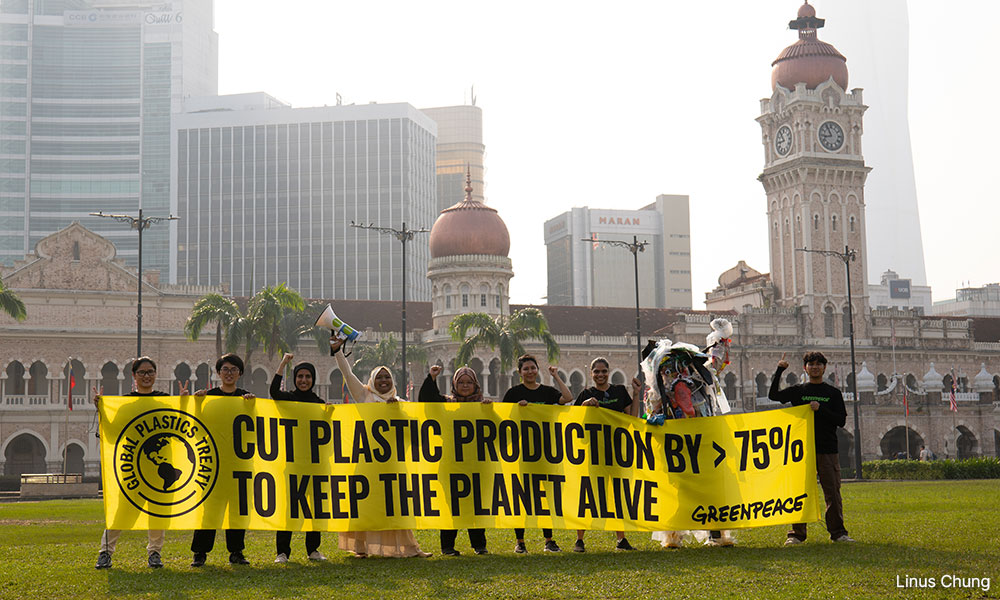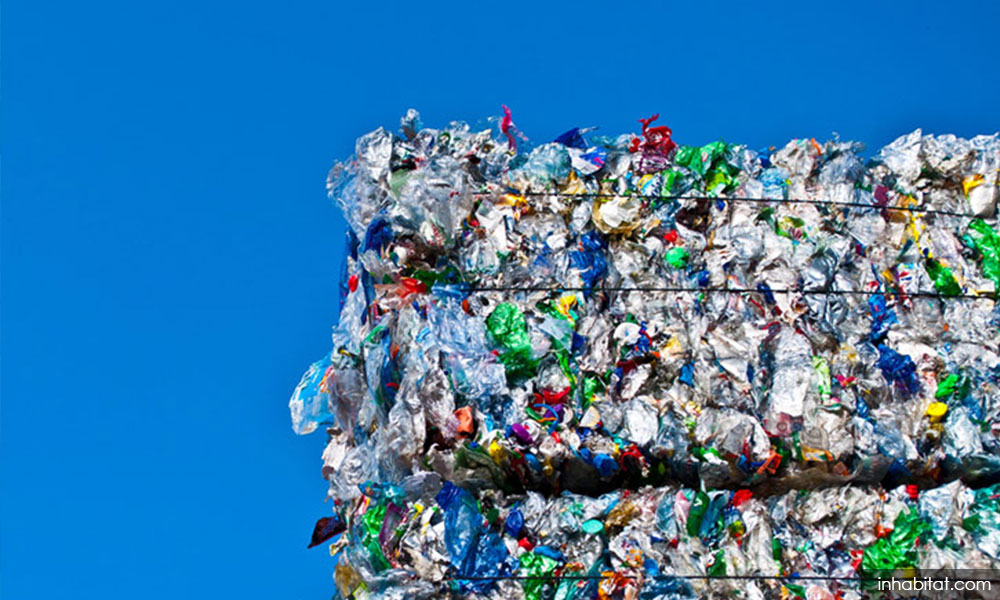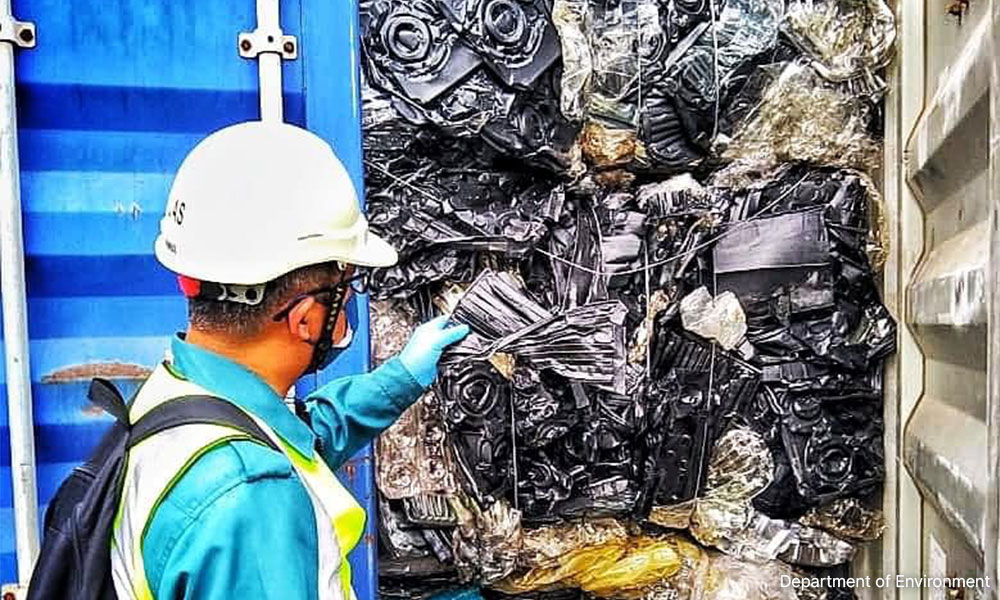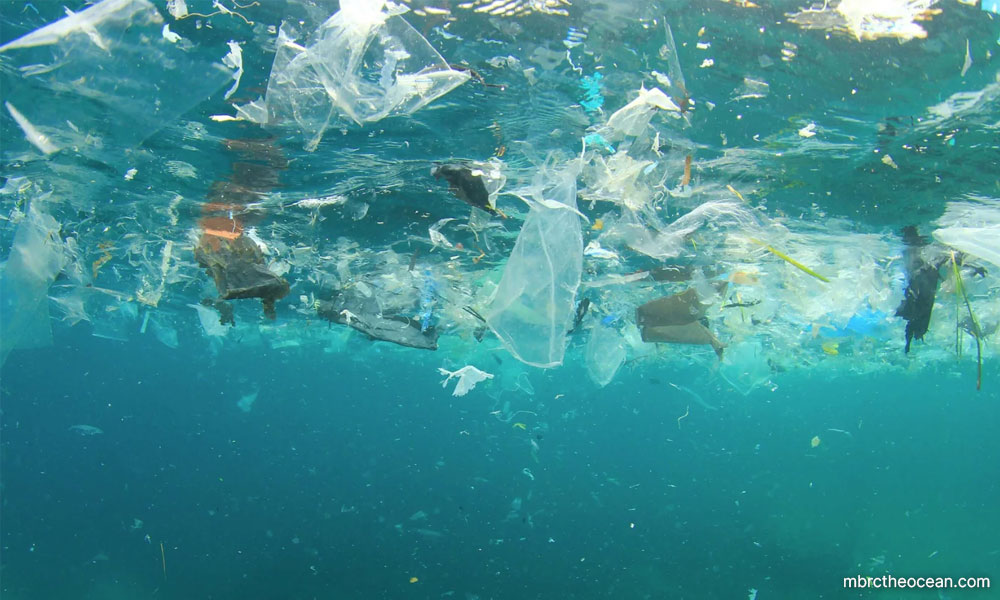“At Greenpeace, we believe that recycling is a failed system.”
This is the bombshell Greenpeace public engagement campaigner Hema Sulakshana Mahadevan dropped to shatter the long-held notion that recycling is the answer to dealing with plastic waste.
“We are producing too much,” Hema explained, adding that “plastic production is growing out of control”.
“We, along with other countries, are failing to manage our waste. We don’t have enough facilities and resources to manage this waste.”
One of the key problems, according to Hema, is that not all plastic waste that ends up in the trash bin can be recycled.
“Consumers are not aware because there is not enough education on this. The issue of plastic pollution is still going on. It persists because there is a fundamental misalignment in addressing the problem.
“No matter how much we are told to reuse and reduce, we will never be able to avoid generating waste or contributing to pollution because we are continuously churning out plastics,” she added.

Hema said Malaysia, which is one of the biggest plastic manufacturers in the world, does not have the capacity to deal with the waste.
“The landfills are filled to the brim, and it’s been going on for decades. We do not have an effective waste management programme to deal with this issue,” she added.
That is why Greenpeace wants Malaysia to ink the global plastic treaty to end plastic pollution by the end of 2040.
Greenpeace is also urging the Malaysian government to take a strong stand at the upcoming Intergovernmental Negotiating Committee (INC-4) from April 23 to 29 this year in Ottawa, Canada.
The focus of INC-4 is on developing an international legally binding instrument on plastic pollution, including in the marine environment.

“One of our major requests is getting the government to cut down on plastic production by 75 percent,” stressed Hema, who is aware that it is a huge task.
Most plastics can’t be recycled
According to Federal Territories Solid Waste Management and Public Cleansing Corporation (SWCorp), the amount of trash generated in Kuala Lumpur and Putrajaya in 2022 was 796,795 metric tonnes, of which plastic comprised 210,966 tonnes.
Only three out of the seven types of plastics manufactured - type one (polyethylene terephthalate), type two (high-density polyethylene), and type five (polypropylene) - can be recycled.
Hema also pointed out that not all facilities in Malaysia accept all three types of recyclable plastics. Most accept only one.
“This is because different types of plastics need to be recycled using different types of machinery,” she said.
Plastic that is contaminated will not be recycled either. For example, the utensils used for food and drinks have to be cleaned and dried before they are recycled.
“When a lot of these contaminated plastics go to these recycling companies, they don’t have enough manpower to clean all of these plastics and dry them,” said Hema.
She explained that there is no strict regulation of waste segregation by households and this contributes to a large amount of plastic waste not being recycled. Plastic manufacturers often pass the blame to consumers when it comes to plastic waste.

She added that it is crucial to constantly educate the public on recycling and the dangers of plastic waste.
“Some of these plastics come with other materials. For example, when you buy coffee, the cups are not recyclable. People think they are paper cups, but they are not. If it is made entirely of paper, your drink will leak through. There’s a very thin lining of plastic. So it can’t be recycled because it is difficult to remove the plastic,” she said.
Hema believes that policymakers lack the will to develop educational policies to address the issue of plastic waste. Instead, they are looking at sustainable economic gains and feel that investing in incinerators is the way forward.
“They are not looking at the growing production of waste. There was a Malaysian plastics sustainability roadmap that was scrapped when the ‘backdoor’ government came in. The current government has come up with a new one but there is too much focus on plastic recyclability.
“They don’t talk about a target date of when this will be implemented. They talk about false solutions like bioplastics,” she said.
Hema said that bioplastics are not always as green as they are made out to be. However, focusing on them opens the door for manufacturers to come up with products that use the word “bioplastic” on them and claim they are biodegradable when they are not.
“We don’t have enough recycling facilities to manage the waste produced. In 2019, the National Solid Waste Management Department said 62 Malaysian companies had approved permits to import and process plastic waste.
“At that same point in time, Malaysia imported waste from 10 countries (that they know of) that amounted to 456,000 tonnes. Sixty-two companies are not enough to process all this waste. Plastic is light, so we have to look at the volume,” she said.
Hema emphasised that the problem is improper disposal of trash that goes into landfills.

No consistency in waste management
Only six states have adopted the Solid Waste and Public Cleansing Management Act 2007. So, there is no consistency across the nation.
Hema pointed out there are numerous policies but no proper implementation and monitoring.
“So far, the Act says that corporations have to regulate their waste, and they have to report on how much waste they create. But we don’t know whether that has been happening or not,” she said.
Besides poor implementation, Hema said that another reason for the waste management system’s failure is the practice of a linear economy that promotes a throwaway culture.
“It is focused more on profitability, instead of sustainability. We need to implement a reuse economy, to ensure that waste is completely removed from the system itself. This means that products with a longer shelf life can be reused,” she added.
These same reusable products, according to Hema, should be recyclable and turned into something else, helping minimise material consumption.
Poisoning ourselves
When plastics are improperly disposed of, humans and nature will bear the long-term burden.
When exposed to heat, plastic releases harmful chemicals and toxins. Even if an incinerator is used, burning plastics will release deleterious substances and heavy metals like lead.
These substances are carcinogenic and can cause chronic diseases.

Fragmentation of plastics takes time and this is how microplastics form. E-waste especially leads to the contamination of groundwater.
Hema said if there is a landfill near a water source, these harmful substances will seep into the water source when there is rain.
“It is not only hazardous to humans but also to our flora and fauna. Microorganisms are affected too. This disrupts the ecosystem.
“Imagine if you have a crop field around the area and how it will affect the food grown,” she added. - Mkini




No comments:
Post a Comment
Note: Only a member of this blog may post a comment.